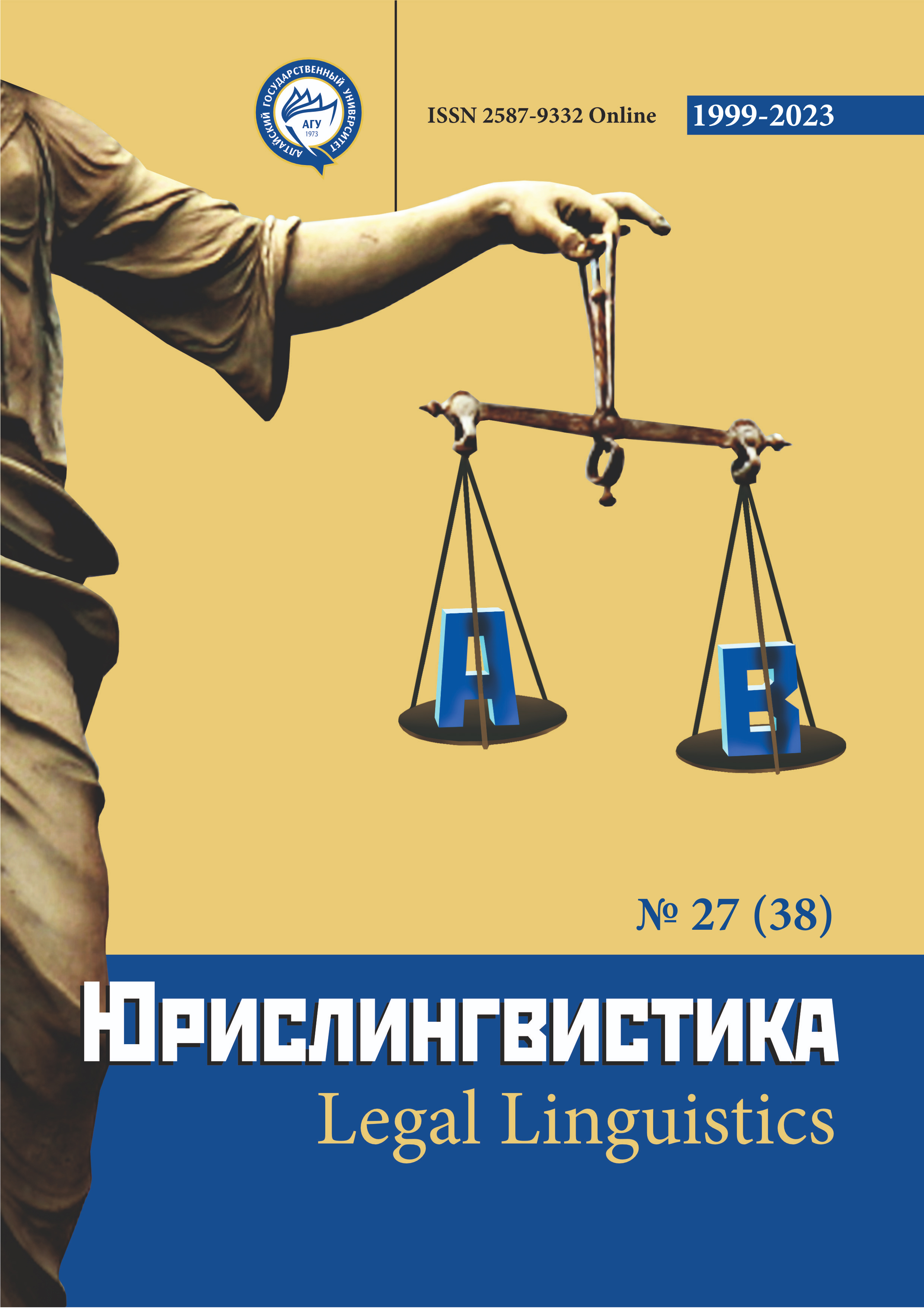Methods for Automated Comparative Analysis of Texts when Detecting Signs of Plagiarism in Expert Case Examinations of Сopyright and Related Rights Infringement
УДК 81'33 ББК 67.53
Abstract
Within the framework of linguistic expertise on cases of copyright and related rights infringement experts are increasingly faced with the challenge of comparing several texts and searching for full-text, partial and other (lexical, grammatical, semantic, etc.) coincidences in them, as well as determining the values of these coincidences. Comparing documents manually takes a lot of time, especially if the research materials are multi-page texts. This article suggests possible ways to automate and improve this work by using special online document comparison tools: "Copyscape", "Embedika Compare", "Draftable Online", "Compare texts", "Copyleaks Text Compare Tool". The given list of tools for comparing texts is compiled by the article author based on the experience of using them in expert practice. For each of the services, the article indicates its advantages and disadvantages, as well as describes the algorithm of operation and features of the presentation of comparison results. Some tools have simple functionality and display how many words matched, show the percentage of uniqueness of the compared texts, others have more advanced comparison analytics and, in addition to the percentage of matches and the number of identical words, determine the types of similarities of text fragments, highlighting among them identical (full-text), similar (with minimal changes) and paraphrased. Nevertheless, the obtained results of comparing text files still require their expert verification and further linguistic research with the interpretation of the established coincidences and the definition of their type, especially with regard to lexical, grammatical, semantic, syntactic coincidences.
Downloads
Metrics
References
Бойцов А. А., Кулешова А. А., Лизоркин А. М. Новый подход к сравнительному анализу текстов в рамках комплексной компьютерно-технической и лингвистической экспертизы / Теория и практика судебной экспертизы. – 2018. – Том 13. – № 3. – С. 47-52. DOI: https://doi.org/10.30764/1819-2785-2018-13-3-47-52.
Жаворонков В. А. Особенности назначения судебных экспертиз при расследовании плагиата / Вестник Волгоградской академии МВД России. – 2013. – № 3 (26). – С. 88-92.
Конституция Российской Федерации, статья 44. URL: http://www.consultant.ru/document/cons_doc_LAW_28399/
Кузнецов В. О., Крюк Е. К. Разграничение компетенций эксперта-лингвиста и эксперта-автороведа при исследовании объектов авторского права и объектов смежных прав / Теория и практика судебной экспертизы. – 2019. – Том 14. – № 3. – С. 15-25. DOI: https://doi.org/10.30764/1819-2785-2019-14-3-15-25.
Методические рекомендации по экспертной оценке оригинальности текстов диссертаций в системе «Антиплагиат» / О. С. Беленькая, И. Б. Стрелкова, О. А. Филиппова, Ю. В. Чехович. СПб, 2021.
Садова Т. С. Текстовые заимствования (плагиат) как предмет лингвистической экспертизы / Acta Linguistica Petropolitana. – 2019. – Vol. 15.1. – С. 184-194. DOI: https://doi.org/ 10.30842/alp2306573715109.
Copyright (c) 2023 Полина Белова

This work is licensed under a Creative Commons Attribution 4.0 International License.
The authors, which are published in this journal, agree to the following conditions:
1. Authors retain the copyright to the work and transfer to the journal the right of the first publication along with the work, at the same time licensing it under the terms of the Creative Commons Attribution License, which allows others to distribute this work with the obligatory indication of the authorship of this work and a link to the original publication in this journal .
2. The authors retain the right to enter into separate, additional contractual agreements for the non-exclusive distribution of the version of the work published by this journal (for example, to place it in the university depository or to publish it in a book), with reference to the original publication in this journal.
3. Authors are allowed to post their work on the Internet (for example, in a university repository or on their personal website) before and during the review process of this journal, as this may lead to a productive discussion, as well as more links to this published work (See The Effect of Open Access).











